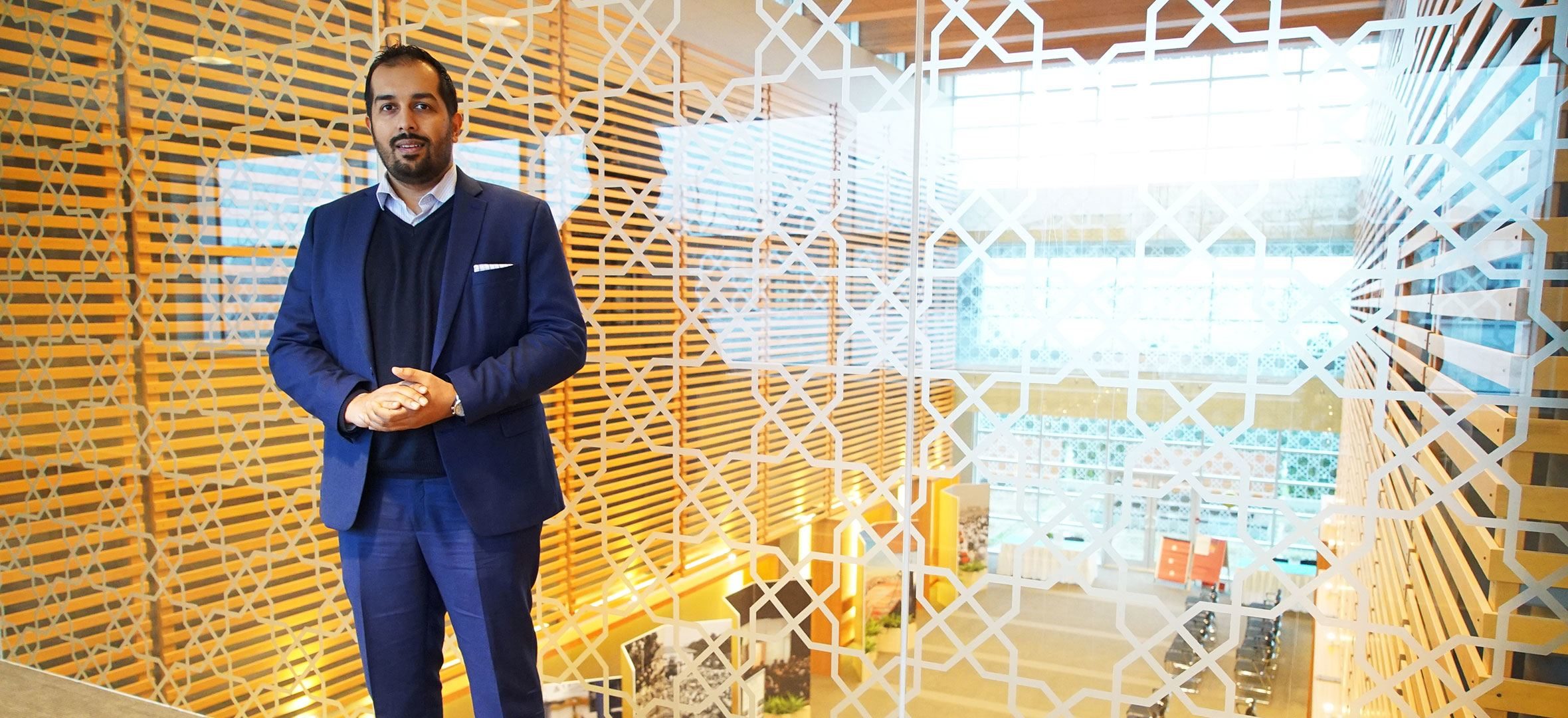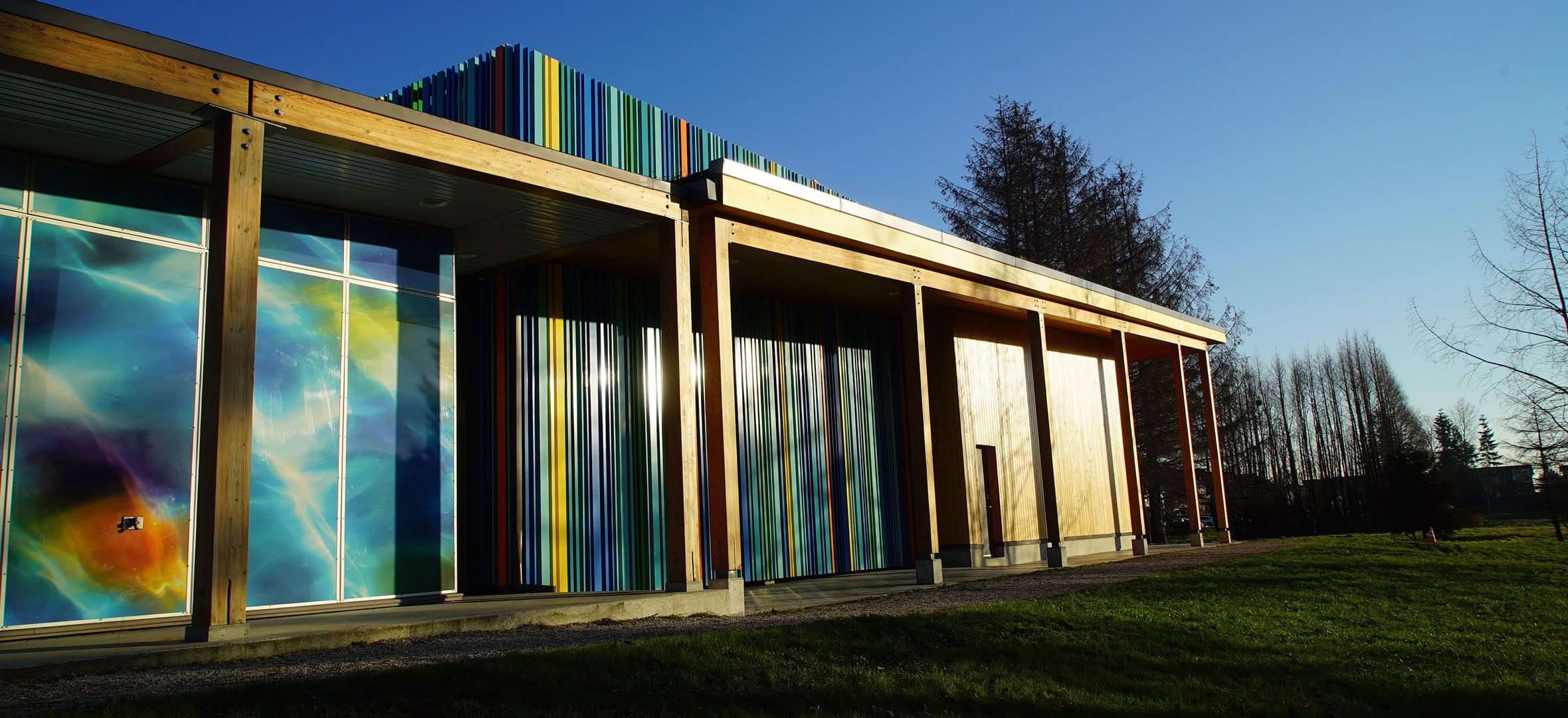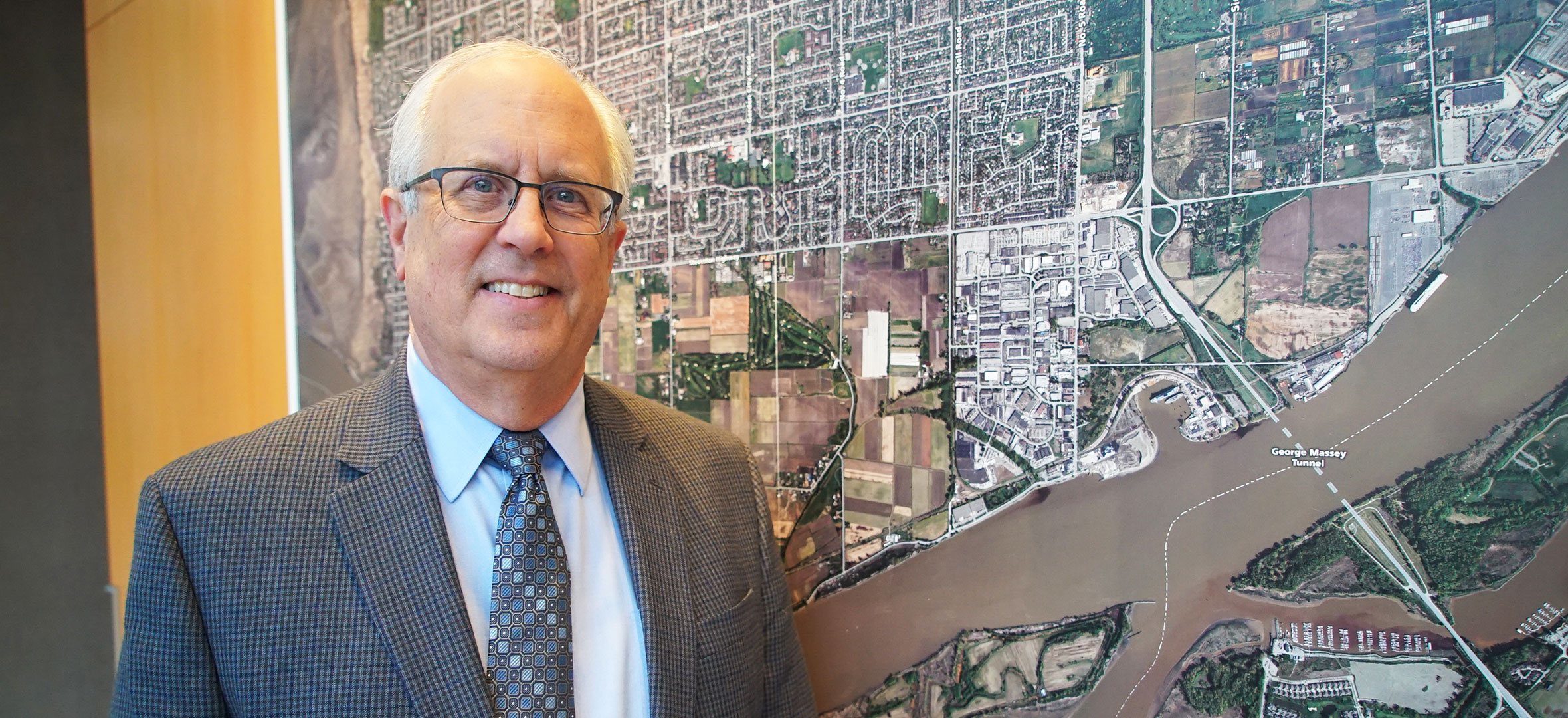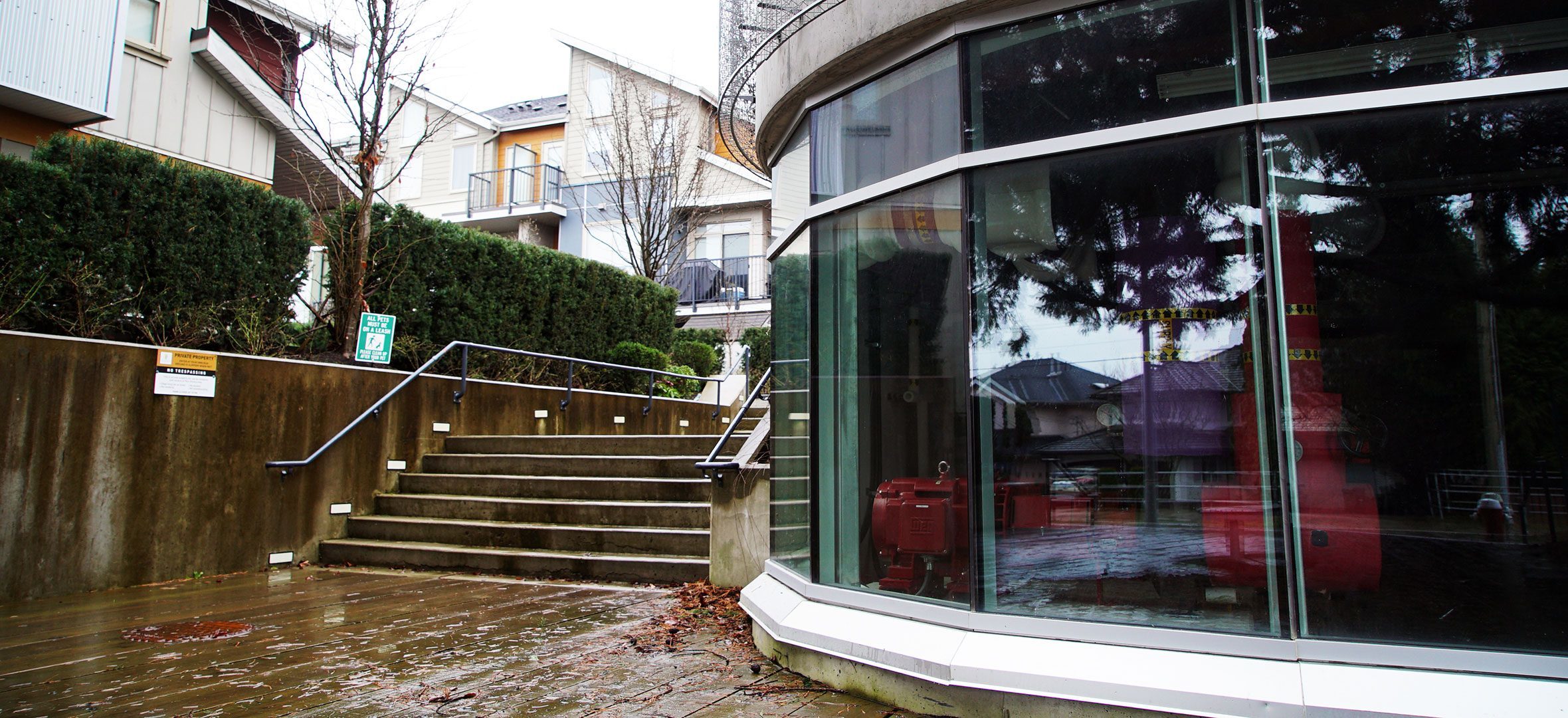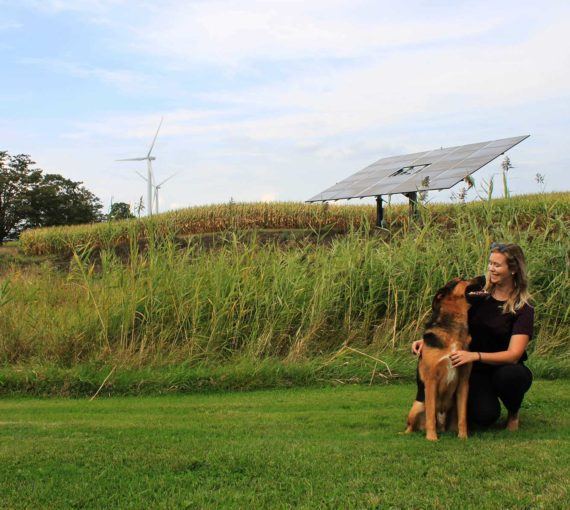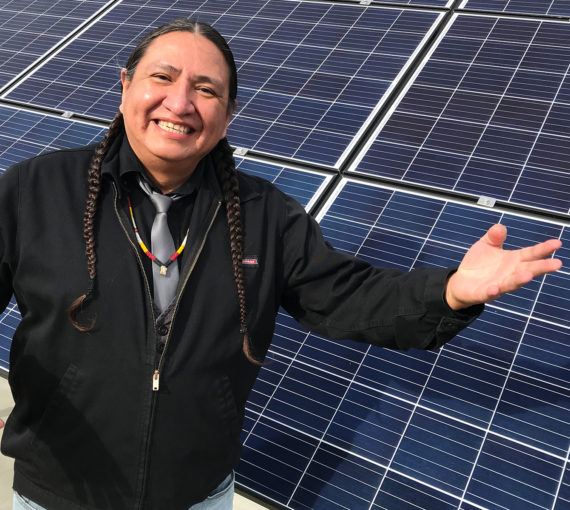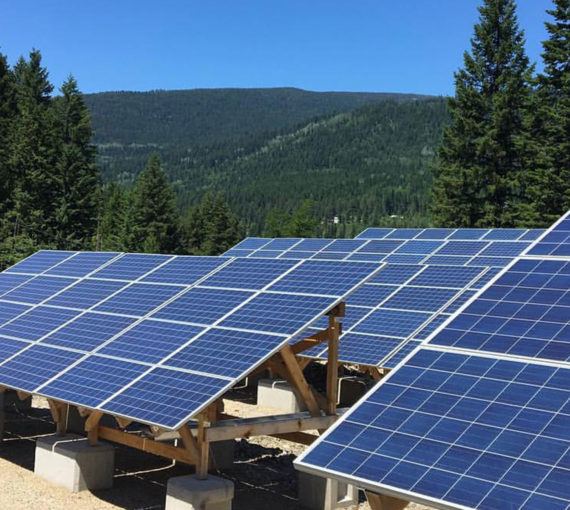
Dana Westermark is behind many successful geo-exchange buildings in Richmond and Steveston, B.C. (Photo: Emily Fister)
Patience and foresight have propelled Dana Westermark to become Richmond’s top green property developer and geo-exchange leader.
“In any business you just have to be looking out ahead and be prepared for what changes might be coming,” Westermark says in his office in Steveston, B.C., a quaint, historic fishing village now part of the City of Richmond.
Westermark launched his property development business into the geothermal heat exchange field 20 years ago. Today, his companies, Oris Consulting Ltd. and Connect Thermal Energy Solutions, are building homes and energy systems in North Richmond, East Richmond and Steveston. All employ geo-exchange systems that use less than half the electricity required under conventional energy systems.
A geo-exchange system is a highly-efficient heating and cooling system for interior spaces. The system utilizes the earth as a heat source and a heat sink through electric ground-source heat pumps, which are now available to homeowners throughout Canada.
In 2010, the City of Richmond partnered with Westermark to build a geo-exchange system for the Alexandra District Energy Utility in the rapidly expanding West Cambie neighbourhood. ADEU is at the heart of Richmond’s effort to bring renewable energy to residential homes. Westermark’s company built the first phase. Today, the district utility system has expanded to its third phase, currently powering 1,500 homes, and has been recognized with local, national and international awards.
Peter Russell, the City of Richmond’s senior manager for sustainability and district energy, says the city was waiting to see if the private sector would get involved with utility services. “It wasn’t happening. We also came to a realization that we would probably have to be involved, that it could not be just private sector–led.”
There is an expression that nations talk and cities act… [This] approach is really important because we have to be poised to take our position in the 21st century as opposed to being stuck back in the 20th century.
Mayor Malcolm Brodie
At the same time, Westermark approached the city with both land and experience in geo-exchange. Their eventual partnership was based on a shared value: to act locally on climate change.
District utility manager Alen Postolka, who oversees the city-owned Lulu Island Energy Company, said the company aims to build resilient communities by providing reliable, renewable energy. Although geo-exchange is the main source of heating and cooling for West Cambie residents, newer neighbourhoods like Oval Village and City Centre are looking into sources like sewage heat and solar.
“Our biggest objective is to make sure we maintain and deliver this service we promised them,” says Postolka. “Because this is the only way we can have successful projects. Down the road, there could be other new technologies and it could be much more economical and much more green.”
With the support of city council and the local community, Richmond’s mayor has also been a champion. As well, at the provincial level, the new energy STEP code for buildings has helped the industry move ahead.
“There is an expression that nations talk and cities act,” Malcolm Brodie, Richmond mayor since 2001, says. “I believe that if you waited for the senior levels of government to address climate change and the other environmental issues we have in front of us, the progress will be, with their best efforts, and best wishes, glacial at best. I think everybody looks at the city to make progress on this. So it is a part of an entire approach. It starts with the city’s buildings, our commitment to reduce emissions, how we want to address climate change, looking at things like giving rebates on appliances, the electric charging stations for the citizens, what we expect from the development community.
We are really fortunate to be able to tie into the work the City of Richmond has done in terms of renewable energy. In our community, in the Ismaili tradition of Islam, there is a very strong ethic in being the steward of the earth for the future generations.
Khaleel Meghji
“The approach is really important because we have to be poised to take our position in the 21st century as opposed to being stuck back in the 20th century.”
Across the street from the Alexandra District Energy Utility, long-time volunteer Khaleel Meghji is hosting a tour of the Ismaili Jamatkhana on Odlin Drive. It’s one of the newest Ismaili Jamatkhanas in Canada and, so far, the only one using a geo-exchange system.
“We are really fortunate to be able to tie into the work the City of Richmond has done in terms of renewable energy. In our community, in the Ismaili tradition of Islam, there is a very strong ethic in being the steward of the earth for the future generations,” Meghji explains.
Stewarding the earth is also important to Westermark. He’s planning a new pilot project in Kelowna that will use solar panels to meet the entire heating and cooling needs of building residents — innovation in the present for a more sustainable future. He smiles and says, “The entire system will be renewable.”
Renewable energy is empowering communities across the country. Charged Up is the story of you — of all of us — on a mission for a cleaner, healthier, charged-up Canada.
